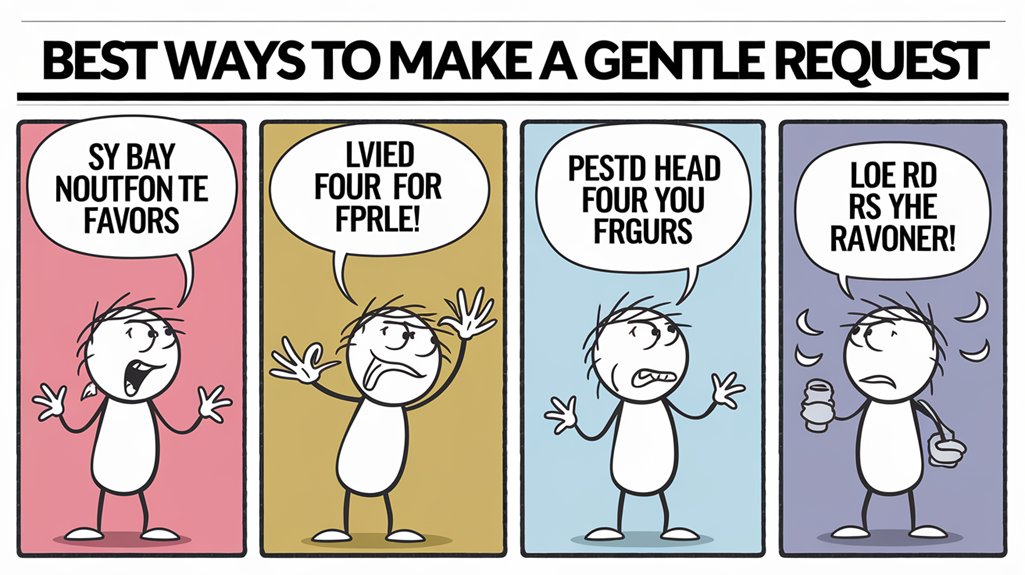Physical Address
304 North Cardinal St.
Dorchester Center, MA 02124
Physical Address
304 North Cardinal St.
Dorchester Center, MA 02124

Transform your workplace communication with these proven techniques for making gentle requests that get results while preserving relationships.
When your coworker rushed past your desk without acknowledging the report you’d prepared, you probably wished you’d known how to address the situation diplomatically. Making requests in today’s fast-paced workplace requires a delicate balance between assertiveness and sensitivity. You’ll find that mastering the art of gentle communication isn’t just about being polite—it’s about achieving your objectives while maintaining positive relationships. Whether you’re dealing with busy executives or overwhelmed teammates, these three proven techniques will transform your approach to making requests and help you navigate even the most challenging professional interactions.
When making requests, one of the most effective ways to sound polite is using past tense forms.
You’ll create a sense of distance that makes your polite requests feel less direct and confrontational. Instead of saying “I hope to leave early,” try “I was hoping to leave early.”
This simple shift in tense makes your requests more professional and considerate, especially in formal settings. The past progressive form can be particularly useful when making requests to professors or employers.

By incorporating softening modal verbs into your requests, you’ll instantly make them more polite and approachable.
When making permission requests, opt for phrases like “May I” or “Could I” instead of direct demands.
For obligation expressions, transform “You must” into gentler alternatives like “It would be best if.”
You can also frame your requests as suggestions using “might” or “could” to maintain a cooperative tone.

Through effective reference management, you can maintain control over your professional reputation while respecting privacy boundaries.
When requesting reference removals, consider ethical considerations and reference confidentiality.
You’ll want to contact platform support directly, explaining your legitimate reasons for removal.
If you’re using services like Trusted Housesitters, persistence with support teams can help achieve your goal, even without the reference provider’s direct involvement.
Member services assistance can be particularly helpful when seeking to remove references that aren’t based on actual sitting experience.
Practicing polite phrases and purposeful communication patterns will help you master the art of gentle requests. You’ll find that adding distance through past tenses, softening your statements with modal verbs, and removing direct personal references creates more comfortable conversations. When you’re mindful and measured in your approach, you’ll build better relationships and receive more positive responses to your thoughtfully worded requests.